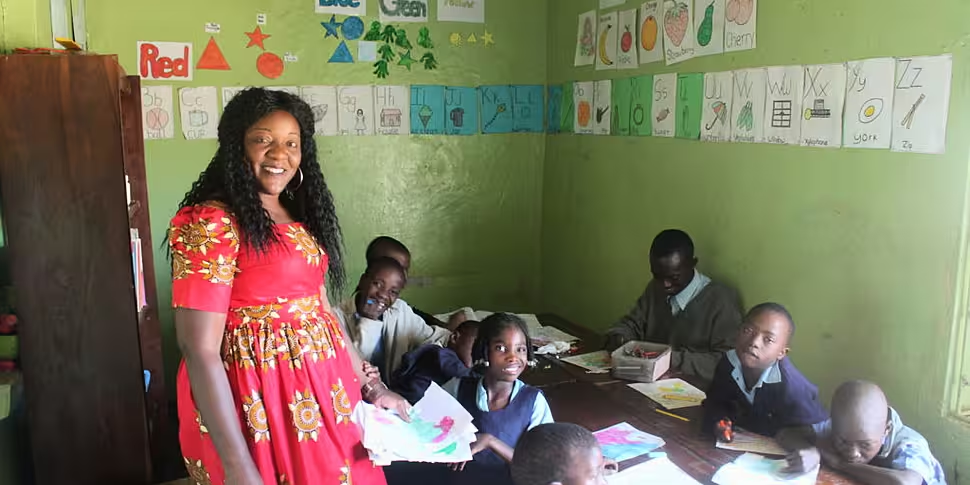In Kabwe, two and a half hours north of Zambia’s capital Lusaka, the Caleb Centre for Children with Autism is full of life.
This unique and underfunded centre is supported by the tireless work and donations of local volunteers, parents and community members. It’s an atmospheric space.
As I enter, what struck me immediately was the enthusiasm of the children inside vying for love and attention. The school’s green interior walls are adorned in artwork, its classrooms filled with children’s voices. Caleb Luulu (12), whom the centre is named after, pulls me by the hand into the main hall where I find all the children eating their breakfast, some at the main table, some standing, some in their own world this morning.
Parenting & Disability
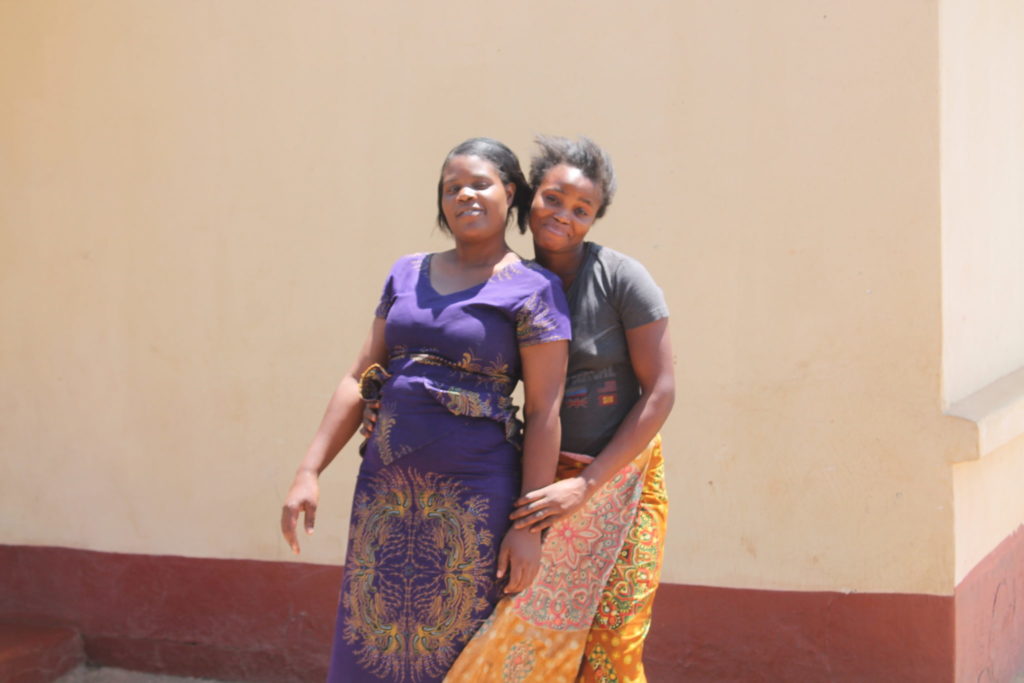 Nellie Tembo (39) and Sharon Kubungo (29) pictured outside The Caleb Centre for Children with Autism in Kabwe, Zambia.
Nellie Tembo (39) and Sharon Kubungo (29) pictured outside The Caleb Centre for Children with Autism in Kabwe, Zambia.“It was so difficult with him growing up, we tried to take him to the hospital to find out what was wrong with this child,” said Nellie Tembo, the schools’ founder and mother to Caleb.
“But we were told that he was okay. Being the only boy, they interpreted that there was a little bit of spoiling, that we were wearing soft gloves for him. I had never heard of autism before.”
I would take his sister’s to school and he would remain in the house, and I’m thinking what should I do? Should I stop work so I can look after this boy?”
“But then I said, maybe there are other parents out there who have children like him, maybe if the three, four, five of us came together we could do something.”
The Caleb Centre for Children with Autism
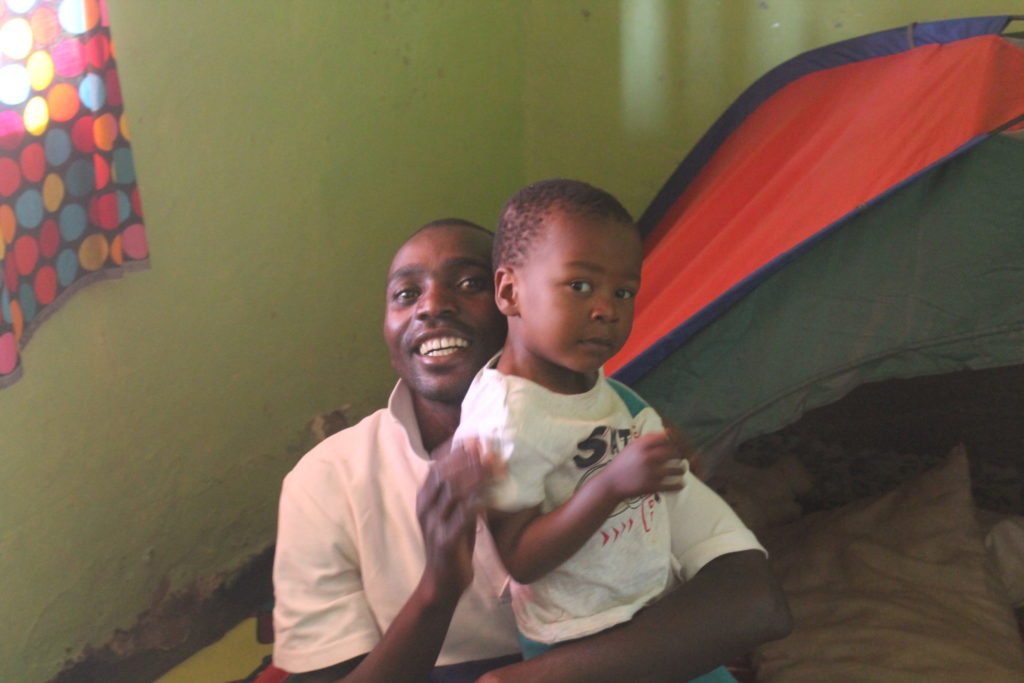 Steven Kunda (28) pictured beside baby Lubuto inside The Caleb Centre for Children with Autism in Kabwe, Zambia.
Steven Kunda (28) pictured beside baby Lubuto inside The Caleb Centre for Children with Autism in Kabwe, Zambia.In 2016 Nellie started The Caleb Centre for Children with Autism with only three students. The school was created not just for the children inside but for the children’s parents who were unable to work while looking after them. Since opening, the school has been a major success and now the centre caters for over 60 homes across Kabwe.
The school is run on donations and volunteers, Nellie explains, parents can choose to either donate to the school financially or help out by looking after the children, cleaning or by maintaining the grounds. The centre also receives help from Irish literacy charity SUAS.
However, projects like The Caleb Centre for Children with Autism are the exception to the rule when it comes to special needs education in Zambia.
Accessing Disability Education in Zambia
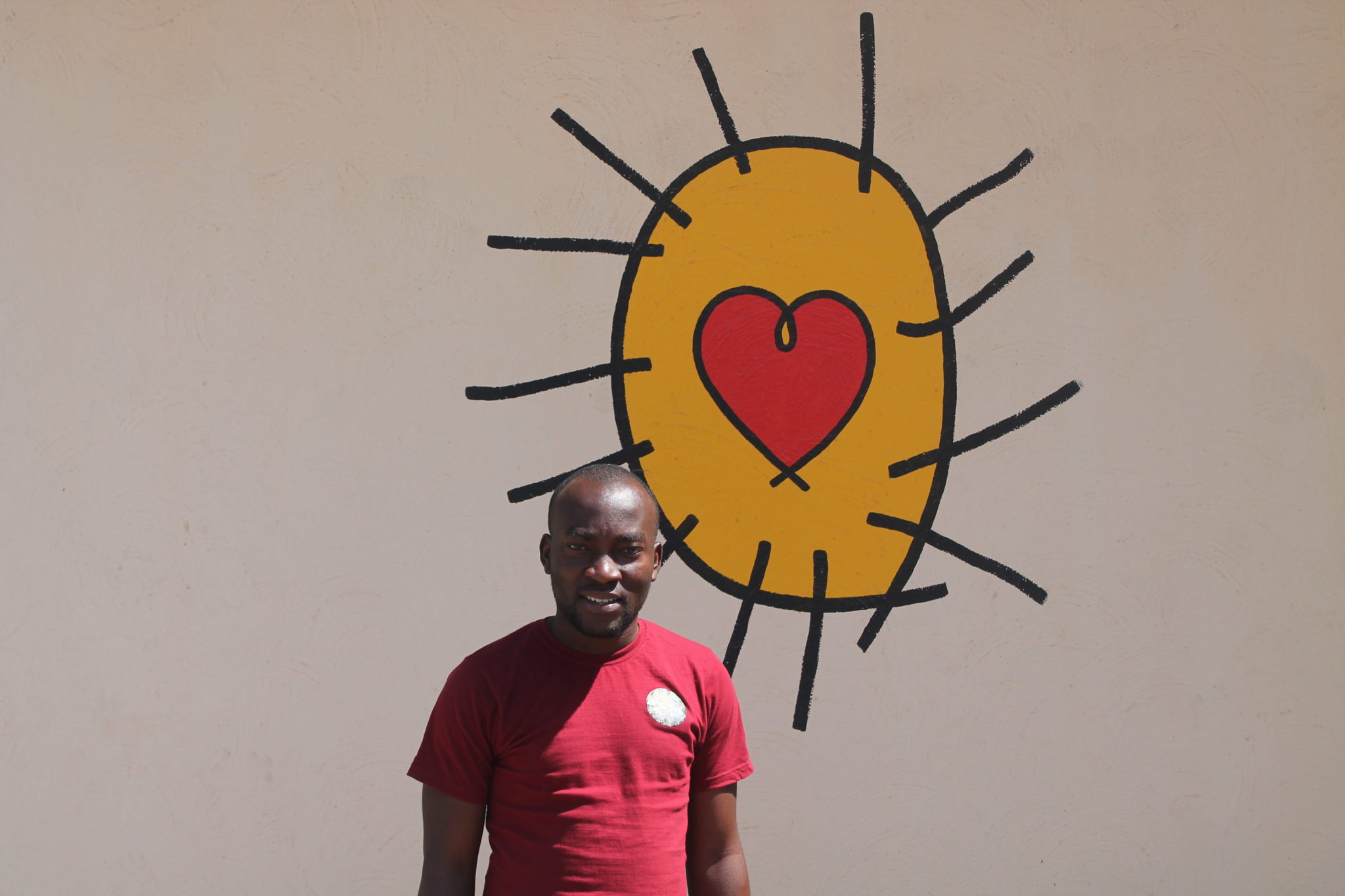 Dennis Kanyamuna, Head Community Care Center Manager at Special Hope Networks pictured outside their centre in Roma, Lusaka, Zambia.
Dennis Kanyamuna, Head Community Care Center Manager at Special Hope Networks pictured outside their centre in Roma, Lusaka, Zambia.A 2013 study on early childhood education in Zambia found that there over 133,000 children with disabilities were not accessing formal schooling.
Free basic education was made available to all Zambian children in 2002, however children with disabilities struggle to avail of this due to a combination of high transportation costs, inaccessibility within schools, a lack of special needs teachers and able-bodied siblings being seen as more deserving of costly education.
The 2015 UNICEF Zambia National Disability Survey found that while a majority of children with disabilities have accessed formal primary education in Zambia. persons with disabilities, rural dwellers, and female students all reported fewer years spent at school.
“The government has come up with special units, yes they are trying. But the challenge is that there are not enough special schools,” said Dennis Kanyamuna in Lusaka, Head Community Care Center Manager for Special Hope Networks, a faith-based organisation helping over 430 children with intellectual disabilities across Zambia.
“For the children with intellectual disabilities because of their slow learning it becomes tricky because not just this government but even their parents feel that they won’t benefit from it at the end of the day.”
Social Stigma and Disability
Stigma towards children with disabilities is common throughout the country, especially in rural areas were myths remain around catching intellectual disabilities such as Downs’ Syndrome and autism as if they were a disease. In some communities’ children born with a disability are thought to be a result of a curse placed on the family leading to some homes being ostracised by neighbours.
“Raising a child in Zambia with a disability, speaking from experience has been very, very difficult,” said Nellie. “Especially where people do not want to associate with you because they fear your disability is actually contagious.”
“Stigma did not just come from the community, but even from my brothers and sisters, members of my own family wouldn’t accept my son,” she said. “He was too weird for them. When they were eating and he touched their food, everyone would stop eating, they would just get their food and put it in the rubbish bin, and everybody would keep quiet.”
“If they wanted to go somewhere, they would ask if he would be following. Like what do you want me to do?”
“When people came to visit it would be worse, they would even suggest locking up my son in my bedroom.”
Disability Service Provision in Zambia
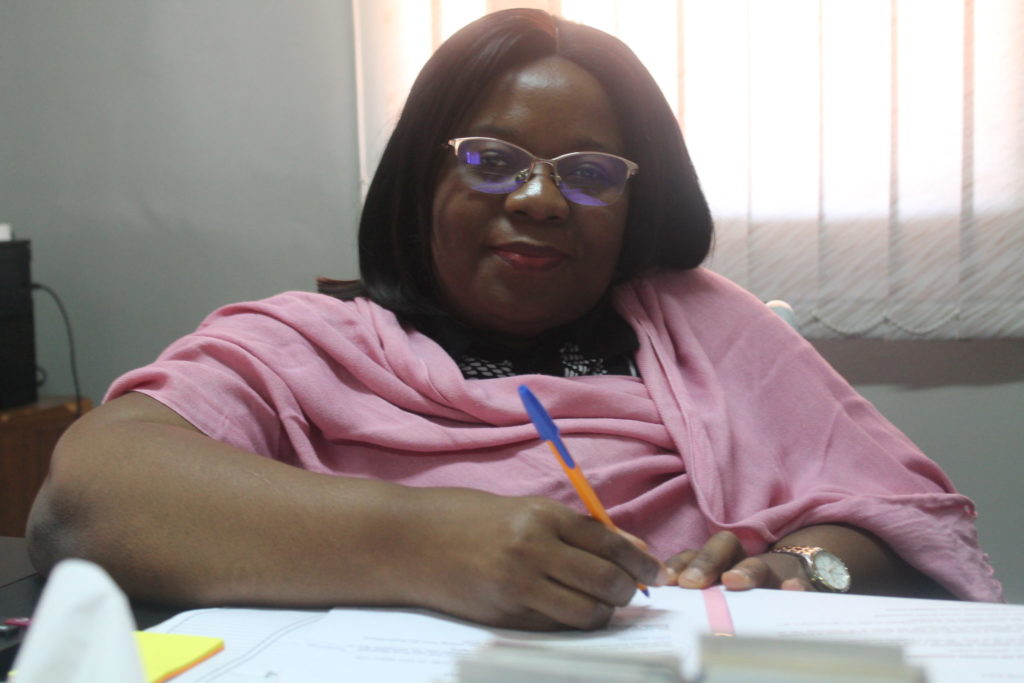 Julien Mwape (48), Director General of the Zambian Agency for Persons with Disabilities pictured inside their base in Lusaka, Zambia.
Julien Mwape (48), Director General of the Zambian Agency for Persons with Disabilities pictured inside their base in Lusaka, Zambia.According to UNICEF’s Zambia National Disability Survey (2015) around 4.5 per cent of children aged two to 17 had some form of disability. Disability rates were found to be higher in urban areas, and more rates were higher among females than among males.
According to Acting Director General of the Zambian Agency for Persons with Disabilities Julien Mwape (48), there is hope on the horizon. Improvements are being made to ensure children with disabilities are able to access education and school attendance among children with disabilities is rising.
“I am a disabled person myself, I had polio when I was four years old, so basically my whole life I have been disabled. I have paralysis in both legs, and I went to a school which was a special school and later on I went to a mainstream school, so I kind of had the experience of the two,” she said.
“Special schools then were enclosed, and they were exclusive for persons with disabilities so that was the only place where we were being taken. At least something good came out of them as we were offered rehabilitation and education services. Something that wasn’t happening out there then.”
“Parents’ value back then on a child with a disability wasn’t very high, because they thought, ‘well what do we get out of this person? Absolutely nothing.’”
“The obstacles, some are still there, but I think generally people have become a bit knowledgeable about stigma and discrimination, they now know that even a child with a disability given the same opportunities as their able bodied counterpart they will be able to turn around their life.”
Transport in Zambia
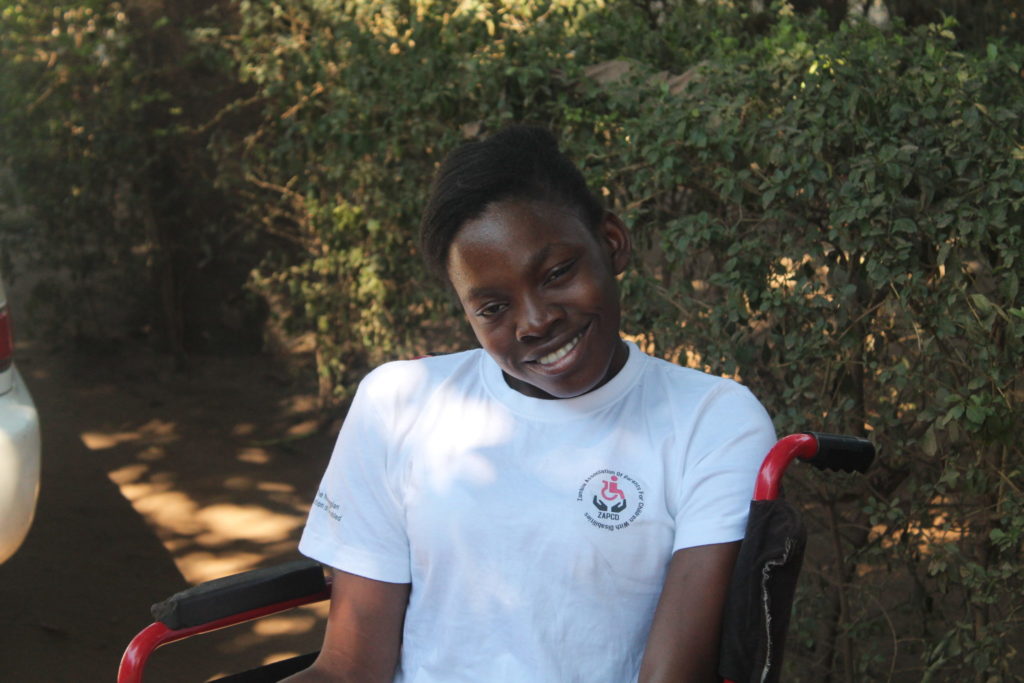 Blessings Mulumbu (20) pictured alongside her mother Nophreen Ing’tu Simata (45) in Livingstone, Zambia.
Blessings Mulumbu (20) pictured alongside her mother Nophreen Ing’tu Simata (45) in Livingstone, Zambia.Near the end of my journey, I took a nine hour bus from Lusaka to Livingstone to meet student and youth disability advocate Blessings Mulumbu.
On the street at each stop, vendors sold their produce and refreshments, while preachers and travelling salesmen sold bibles and miracle cures inside the un-airconditioned coaches.
When I met Blessings and her mother Nophreen (45) in their home just outside Livingstone, she expressed to me her hope that improvements are being made. Blessings was born with Cerebral Palsy, and she still struggles to access her own education. She finds travelling to the school to be especially difficult in her wheelchair.
“Accessing education in Zambia as a person with disability is not that easy because first of all, by the time you have been selected to go to school, first they will look at your condition,” she told me. “They won’t look at the ability that you have they will only see the condition that you are in.”
“They will tell you that, no, you cannot come into this school because of your disability.
“Transport is the biggest obstacle because when I started in boarding school, I would move from Livingstone to Monze [almost four hours away]. Some of the bus drivers would say, ‘you should pay but also the wheelchair should pay.’”
“I don’t want to drop out of school because I really want to fight for children with disabilities and their rights, I want to do something for the world. To show them that even if I have a disability, I still have the ability to show them what I have. Because this disability is just physical, inside I’m perfect.”
The Future
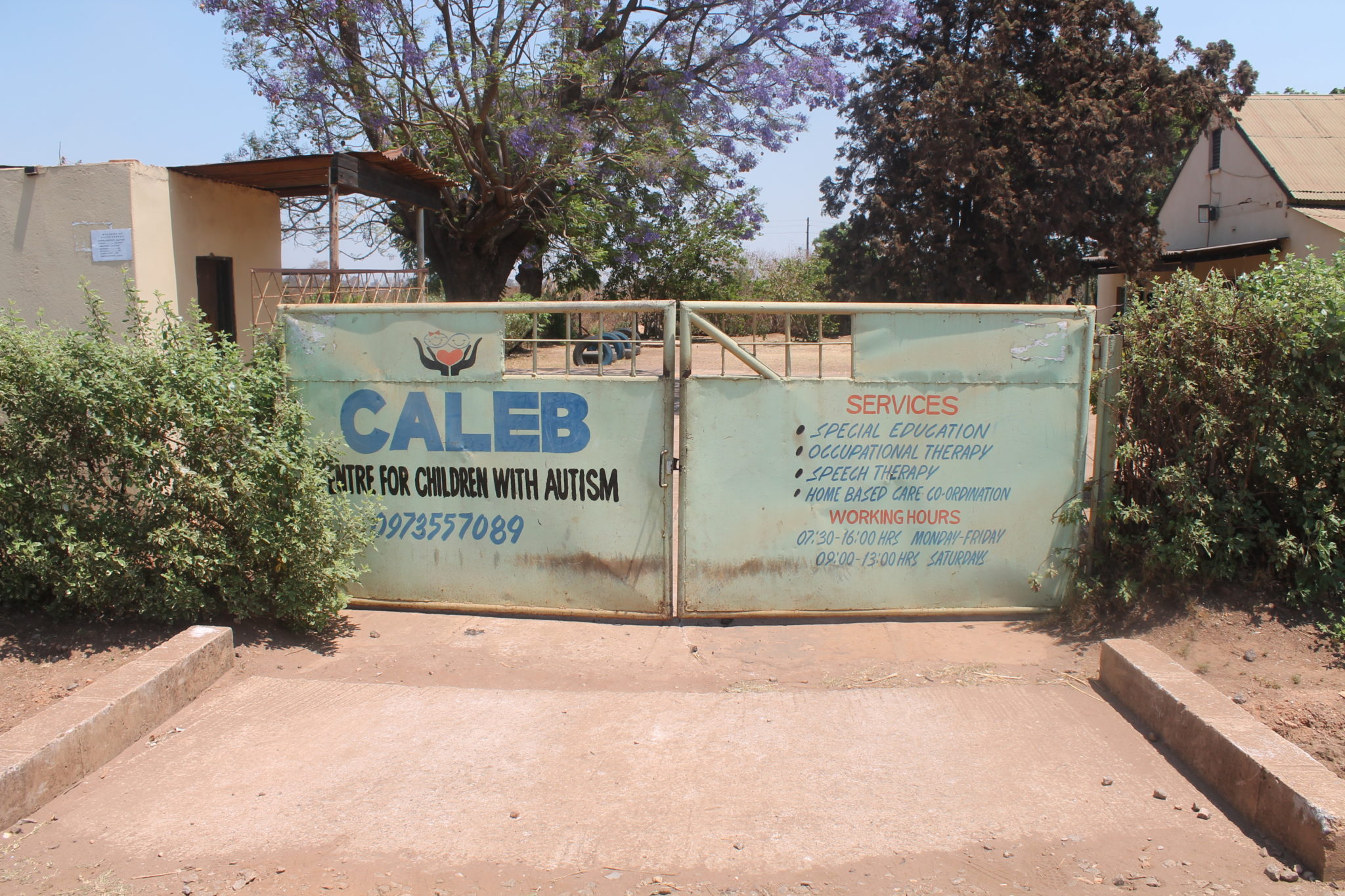 The Exit to Caleb School for Children with Autism in Kabwe, Zambia.
The Exit to Caleb School for Children with Autism in Kabwe, Zambia.As I climbed onto the coach to return to Lusaka and braced myself for another gruelling nine hours travelling, I considered all the children whose struggle to travel is far greater than mine.
The stories of the children, parents and disability advocates I had met on my journey remained fresh in my mind. I thought about the parents fighting tooth and nail so that their children could access an education, and about the volunteers doing everything they can to improve young people’s lives.
In September 2019, I returned to Ireland with a new understanding of the obstacles faced by young people with disabilities both in Zambia and at home. This morning as I write this article for Newstalk.com I am optimistic that Zambia’s educational system will someday be able to offer an inclusive educational provision for all and importantly will improve the lives of Zambia’s forgotten children.
Callum Lavery travelled to Zambia with the support of Irish Aid and the Simon Cumbers Media Fund – Student Fund.



